As Gen Z enters and navigates the working world, it’s an opportune time to help them build the habits—like lifelong learning and building a professional network—that pave the way to a successful career. Your educational programs can help attract Gen Z to your association and get them used to relying on you for resources, support, and community.
Do you offer what Gen Z needs?
Don’t assume you know what Gen Z needs in their professional (and perhaps personal) lives. Do your research first: ask them via focus groups, polls, and conversations. What can your association provide that these young adults would be hard-pressed to find elsewhere in one place? Think about how your association can open up opportunities for them.
Skills and knowledge. Teach Gen Z what they need to get hired, improve job performance, and get promoted.
Credentials. Help them prove their mastery of these skills.
Information. Keep them in the know and up to date about industry news and hot topics.
Connections. Put them in the same virtual or real room with people who can:
• Hire them or refer them to others.
• Answer their questions and give advice.
• Show them the industry ropes.
• Offer support and empathy.
• Hold them accountable.
Community. Give them a professional home where they feel a sense of belonging and where they can find friends and acquaintances.

What kind of educational programs will attract Gen Z?
Employers know what skills and knowledge Gen Z needs to get hired and promoted. Convene an employer advisory council composed of HR and L&D professionals from member companies to find out what early-career professionals need to learn and how you can help make that happen.
Industry introduction
In some industries, new professionals have already mastered early-career competencies in college or another educational institution. But for those who didn’t, introductory industry education programs can provide the skills and knowledge they need to start earning their paycheck.
The Transportation Intermediaries Association (TIA) offers the New Broker Success Package, which includes the first year of TIA membership. This hybrid online program combines independent study with live instruction with access to professional coaching sessions too. Participants work independently and in small group settings with coaches.
The JumpStart Program for New and Early-Career Special Educators, an online program offered by the Council for Exceptional Children (CEC), includes live workshops with follow-up Q&A sessions, on-demand sessions, toolkits, learning resource library, and an online community with fellow cohort members, SME presenters and CEC staff for the first three years of the learner’s career.
Microcredentials
Microcredentials are in the news because they’re a more realistic option than traditional credentials for many people. Micro seems doable.
Young professionals don’t have the job experience or knowledge required for most certification programs. But they’d love the opportunity to master new competencies and share this accomplishment via digital badges with prospective employers.
Offer learning pathways for new professionals that cover different subject areas. As they successfully complete programs and courses, they earn stackable microcredentials representing different competencies. They feel a sense of progress as they proceed along the pathway. At the end, they earn a certificate—the capstone of their learning journey.
Cohort programs
Cohort-based online learning programs are a huge hit with Gen Z and Millennials. Cohort programs, usually lasting one to three months, combine independent study with live online educational sessions. Participants hold each other accountable for progress and often continue meeting after the program ends.
You could also schedule start times throughout the year for a cohort to go through the credentialing process together. The National Educational Association found that “supported micro-credential engagement resulted in a higher percentage of micro-credentials being awarded: 87% compared to 53% without support.”

Community support
“Support” is the magic word. Gen Z is used to online learning and can easily find the education they need. If you want their business, you must offer more. Cohort programs facilitated by instructors, coaches, and/or teaching assistants are one place to start.
Offer Gen Z learners opportunities to meet with peers and with member volunteers five to seven years ahead of them in their careers—not so far off that they forget what it was like when they were Gen Z’s age. Provide training to these volunteers so they can confidentially act as coaches—a rewarding role.
Try group mentoring, which takes the pressure off participants. Invite a rotating cast of mentors who can provide different perspectives. Informal mentoring is more sustainable for everyone since it doesn’t require the same time commitment as a structured mentoring program.
Incorporate online discussion forums into all your synchronous courses. Schedule virtual meetups on topics of interest for asynchronous participants.
Affordability
Cost is the biggest barrier to learning for new professionals. Ask corporate partners to sponsor scholarships for credentialing programs, courses, and conferences.
Offer a young professional rate for learning subscriptions. Add Gen Z prospects and customers to a year-round content marketing campaign—newsletters with relevant articles and announcements—so they see your association as an indispensable professional resource.
Never stop reminding industry employers how important it is to support the professional development of their employees, including new professionals. Glint’s 2021 Employee Well-being Report found that opportunities to learn and grow is now the number one factor defining an exceptional work environment.
Other ways to attract Gen Z to your programs
Encourage new professionals who visit your website, attend programs, or upload a resume to your career center to sign up for a special newsletter, a content marketing campaign in disguise. Send them career resources, keep them informed on need-to-know news, and share information they can’t easily find elsewhere, along with promotions for online learning programs.
Consider giving young non-members access to specific forums in your online community. In these forums, they can get to know each other, ask questions, share advice, and meet members. Recruit member microvolunteers to answer questions and guide them to non-member resources.
Offer a deeply discounted membership tier for young professionals. Include a few free microcredentials with membership.
If you can get Gen Z to build a professional development habit with your association, it will pay off for you (and them) in the coming years.





